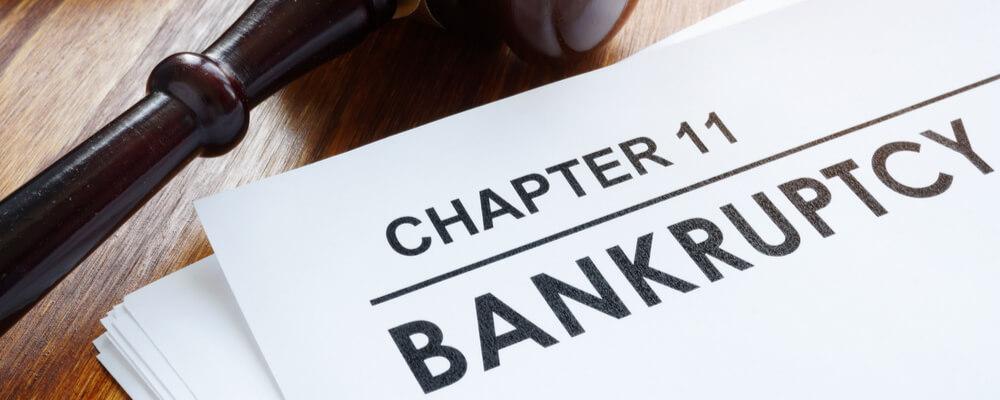When financial hardship strikes, many individuals and businesses in New Jersey find themselves considering bankruptcy as a potential solution. While the prospect of filing for bankruptcy can feel overwhelming, understanding the role of a bankruptcy attorney in New Jersey can provide clarity and direction during these challenging times. This guide explores what bankruptcy attorneys do, when you might need their services, and how they navigate the complex legal landscape of bankruptcy law.
What Is Bankruptcy and How Does It Work?
Bankruptcy is a legal process designed to provide relief to individuals and businesses who cannot pay their debts. The federal bankruptcy code offers several chapters of protection, each tailored to different circumstances. For individuals, Chapter 7 and Chapter 13 are the most common options, while businesses typically file under Chapter 7 or Chapter 11.
Chapter 7, often called “liquidation bankruptcy,” involves selling non-exempt assets to pay creditors and typically discharges remaining eligible debts. Chapter 13, known as “reorganization bankruptcy,” allows individuals to create a payment plan to repay all or part of their debts over three to five years. Understanding these distinctions is crucial when consulting with a bankruptcy attorney in New Jersey.
The Essential Role of Bankruptcy Attorneys
Legal Expertise and Case Assessment
A qualified bankruptcy attorney brings specialized knowledge of federal bankruptcy law and New Jersey-specific regulations. They begin by conducting a thorough assessment of your financial situation, including income, expenses, assets, and debts. This evaluation helps determine whether bankruptcy is the right solution and, if so, which chapter would be most beneficial.
The attorney will review your financial records, identify exempt assets that you can keep during the process, and explain how bankruptcy will affect your specific circumstances. This initial consultation is invaluable for understanding your options and making informed decisions about your financial future.
Document Preparation and Filing
Bankruptcy proceedings require extensive paperwork, including detailed financial statements, lists of creditors, and various legal forms. A bankruptcy attorney ensures all documents are completed accurately and filed within required deadlines. Mistakes in paperwork can lead to case dismissal or other complications, making professional assistance crucial.
The attorney will gather necessary financial documents, such as tax returns, bank statements, and pay stubs, then organize this information into the required legal formats. They also ensure compliance with pre-filing requirements, such as completing mandatory credit counseling courses.
Navigating New Jersey’s Bankruptcy Process
Court Proceedings and Representation
In New Jersey, bankruptcy cases are filed in federal court, with proceedings typically held in Newark, Trenton, or Camden. A bankruptcy attorney represents clients during these proceedings, including the meeting of creditors (also called a 341 meeting), where the debtor answers questions under oath about their financial affairs.
During court appearances, the attorney advocates for their client’s interests, addresses any objections from creditors or the bankruptcy trustee, and ensures proper legal procedures are followed. This representation is particularly valuable when complications arise or when creditors challenge the bankruptcy filing.
Protection from Creditors
One of the immediate benefits of filing for bankruptcy is the automatic stay, which stops most collection activities, foreclosures, and wage garnishments. A bankruptcy attorney helps clients understand this protection and ensures creditors comply with the automatic stay provisions. If creditors violate the automatic stay, the attorney can take legal action to enforce compliance.
When to Consider Hiring a Bankruptcy Attorney
Complex Financial Situations
While simple Chapter 7 cases might seem manageable without legal representation, most bankruptcy situations involve complexities that benefit from professional guidance. These include multiple types of debt, significant assets, business ownership, or disputes with creditors.
Individuals facing foreclosure, wage garnishment, or lawsuits from creditors should particularly consider consulting a bankruptcy attorney in New Jersey. The attorney can explain how bankruptcy might address these immediate threats and provide alternatives to consider.
Asset Protection Strategies
New Jersey has specific exemption laws that determine which assets debtors can keep during bankruptcy. An experienced attorney understands both federal and state exemption options, helping clients maximize asset protection within legal boundaries. This expertise can mean the difference between keeping or losing important possessions like homes, vehicles, or retirement accounts.
The Importance of Local Expertise
Understanding New Jersey-Specific Laws
While bankruptcy is governed by federal law, state laws significantly impact the process, particularly regarding exemptions and property rights. A bankruptcy attorney practicing in New Jersey understands how state laws interact with federal bankruptcy code, providing clients with comprehensive protection strategies.
Local attorneys also have familiarity with New Jersey bankruptcy courts, trustees, and local procedures, which can streamline the process and avoid potential pitfalls that might arise from unfamiliarity with local practices.
Building Relationships with Local Courts
Established bankruptcy attorneys often have working relationships with local bankruptcy trustees and court personnel. While this doesn’t guarantee favorable outcomes, it can facilitate smoother proceedings and help resolve issues more efficiently when they arise.
Key Considerations Before Filing
Before proceeding with bankruptcy, individuals should understand both the benefits and consequences. Bankruptcy can provide debt relief and a fresh financial start, but it also impacts credit scores and remains on credit reports for several years. A bankruptcy attorney helps clients weigh these factors against their specific circumstances and explore alternative debt relief options when appropriate.
Alternative solutions might include debt consolidation, negotiation with creditors, or state-specific debt relief programs. An experienced attorney can evaluate these options alongside bankruptcy to determine the most appropriate path forward.
Summary of Key Insights
Working with a bankruptcy attorney in New Jersey provides essential expertise for navigating complex financial challenges. These legal professionals offer comprehensive case assessment, ensure proper document preparation and filing, represent clients in court proceedings, and protect against creditor actions. Their understanding of both federal bankruptcy law and New Jersey-specific regulations helps clients maximize asset protection while achieving debt relief.
The decision to file for bankruptcy should never be taken lightly, but with proper legal guidance, it can provide a pathway to financial recovery. Whether facing overwhelming medical debt, job loss, or business failure, consulting with a qualified bankruptcy attorney helps individuals and businesses understand their options and make informed decisions about their financial future. The investment in professional legal assistance often proves invaluable in achieving the best possible outcome during challenging financial times.












